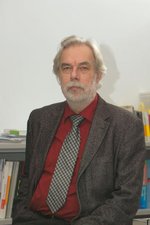
Research on Schools: nwu-essen
The research unit (Forschergruppe) and research training group (Graduiertenkolleg) devoted to the “Teaching and Learning of Science (“nwu-essen), funded since 2004 by the German Research Foundation (Deutsche Forschungsgemeinschaft, DFG), constitute the nucleus of the Universitys Priority Research Programme on “Empirical Educational Research. This thematic combination of a research unit and a research training group is unparalleled in the history of the DFG. Against this background, the University of Duisburg-Essen has the opportunity to evolve – even more so than in the past – into an internationally visible, interdisciplinary centre of excellence for empirical educational research and research-based teacher training.
In 2002 the application submitted by the original Essen group of researchers won out over 20 competing applications from universities all over Germany. The project described in the application was the first, and initially the only, project funded by the DFG in its new initiative to promote “Empirical Educational Research. Currently, six professors (from the fields of biology education, chemistry education, physics education, primary-level science education, educational science and instructional psychology, respectively) and approximately 50 junior and post-doctoral researchers are investigating current topics related to science education in schools.
Since 2006 “nwu-essen – the name of both the research group and the Graduiertenkolleg – has been in the second phase of DFG funding. In the programme, the promotion of junior researchers plays a central role: Over 30 graduate students working toward their PhDs, with basic funding from the DFG and other sources, receive interdisciplinary training in educational research and educational practice. Their research projects are concerned with the basic principles underlying the teaching and learning of science. Data will be collected from approximately 19,000 pupils and 2,500 teachers.
So far this interdisciplinary collaboration between science education, instructional psychology and educational science has been enormously successful. The entire group is housed in the same building, a circumstance which creates opportunities for interdisciplinary cooperation and results in a highly effective organization.

